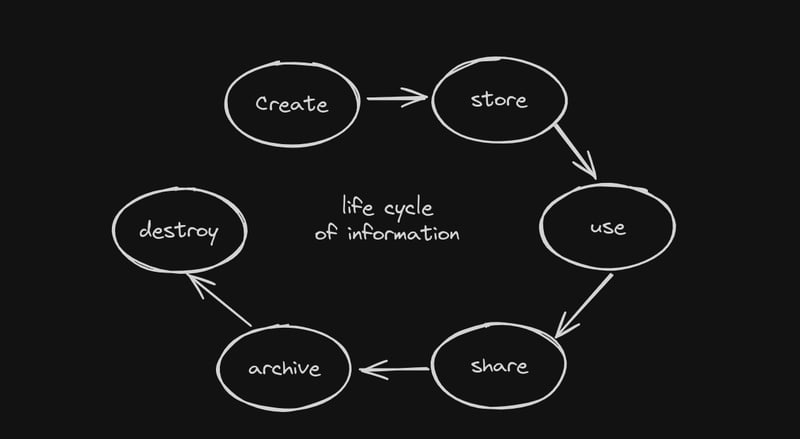📚 How to Never Forget: Mastering the Art of Retaining Knowledge
💡 Newskategorie: Programmierung
🔗 Quelle: dev.to
This article comes from a YouTube video titled I learned a system for remembering everything by Matt D'Avella, a YouTuber focused on productivity content, and Ryan Holiday, described as "one of the world's bestselling living philosophers" in his bio on Amazon.
Basically, we will pass through important insights to fix the content that you can retain when reading a book.
How to Read a Book
First and foremost, we really need to relearn how to read a book. When we are starting out, we often think that reading a book simply involves spelling out words sequentially, constructing phrases, followed by paragraphs, and eventually chapters. However, this approach is perhaps the least effective way to truly absorb and retain the content. It leads us directly into the pitfall of the forgetting curve, which is a topic I address more thoroughly in another article.
Reading should be a positive experience, a pleasure. It's not about rushing through the material as quickly as possible. Nobody boasts, "Dude, yesterday I had the fastest sex ever, it was awesome." If you feel like you're a slow reader and want to pick up the pace without sacrificing comprehension, consider the approach outlined in the book How to Win Friends & Influence People (I believe this is a common feature in all editions of the book, mine being the Portuguese version from Companhia Nacional). Here's how you can read non-fiction books and still extract valuable content:
Cultivate a deep and dynamic desire to learn everything the book has to offer. Approach it with a genuine hunger for knowledge and an eagerness to explore its insights.
Read each chapter at least twice before moving on to the next one.
While reading, take breaks to reflect on how you could apply the content to your own life. Ask yourself, "Where in my life could I use this information? In what types of situations?"
Highlighting is more crucial than you might think. Pause periodically to highlight any passages that you believe will be useful for future reference.
-
Start journaling. Keep a simple notebook handy and jot down any insights or lessons learned from the book, along with the situations they apply to and the source book.
How to Take Notes
We often wonder why we should bother taking notes. Initially, it may seem like a tedious task that only prolongs the time it takes to finish a chapter. However, it's essential to understand the purpose behind note-taking. What sets apart a stored datum from a book and a stored datum that you'll inevitably forget? It's not about hoarding every note and rereading them tirelessly or feeling compelled to tattoo information onto our bodies to ensure we won't forget it.
I refer to this concept as the Life Cycle of Information.
Collect/Create: This stage involves gathering information either by creating it yourself or collecting it from external sources.
Store: Once collected, information needs to be stored in a way that is easily retrievable and comprehensible. This might involve organizing notes in a systematic manner or utilizing mnemonic devices.
Use: Information serves its purpose when it is applied in relevant contexts. This stage involves actively incorporating the stored knowledge into decision-making, problem-solving, or creative endeavors.
Share: Knowledge gains value when shared with others. Whether through teaching, discussing, or collaborating, sharing information enriches collective understanding and fosters collaboration.
Archive: As time passes, some information may become less immediately relevant but still valuable for reference or historical purposes. Archiving ensures that valuable insights are preserved for future use.
Destroy: Not all information retains its usefulness indefinitely. Some data may become outdated, irrelevant, or even harmful. Knowing when to discard or update information is crucial for maintaining an accurate and manageable knowledge base.
The Analog vs Digital
In Matt D'Avella's video, Ryan Holiday suggests favoring the analog path over the digital one, arguing that it allows for a deeper immersion in the content and enhances understanding of the book.
In this approach, after highlighting key passages in the book, we transfer the important information onto flashcards. Subsequently, we revisit and reread the material, organizing it into categories and connections. Employing diagrams or maps can further aid in this process.
However, as a software engineer, I believe we could utilize tools like Obsidian and Excalidraw to organize and revisit the content we need to read, along with our note-taking system. Excalidraw could serve as a comprehensive tool for creating diagrams or mind maps, streamlining the digital note-taking process.
Revisit and Revise
At this point, we understand why we should take notes and how to take them effectively. Now, I feel that this is the most intuitive chapter of this article. Seriously, once you have all your notes, it's faster and more efficient to simply read through them or refer back to the book directly rather than sifting through tiny letters to find the specific chapter you're looking for.
Give It a Try!
Now that you've learned about this system for remembering everything from the books you read, why not give it a try? Start implementing the strategies discussed in this article and see how they work for you. By taking notes effectively, organizing your thoughts, and utilizing tools like flashcards or digital note-taking apps, you can enhance your ability to retain and recall information from the books you've read.
Remember, it's not about completely overhauling your reading habits overnight. Start small, experiment with different techniques, and gradually incorporate them into your routine. Over time, you'll likely find that you're retaining more information and gaining deeper insights from your reading material than ever before.
So why wait? Start now and take advantage of the opportunity to remember everything from the books you read—or at least more than before.
...

 800+ IT
News
als RSS Feed abonnieren
800+ IT
News
als RSS Feed abonnieren